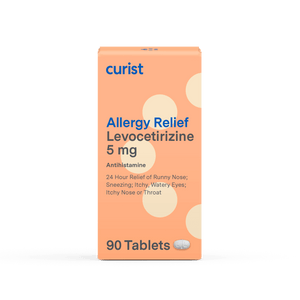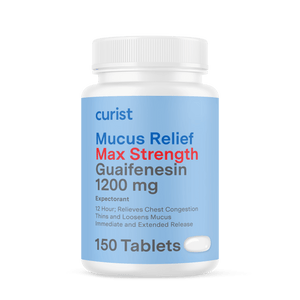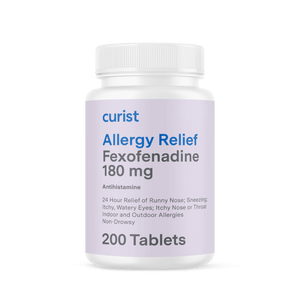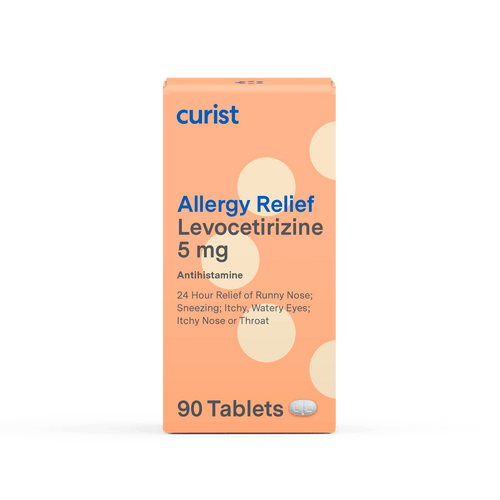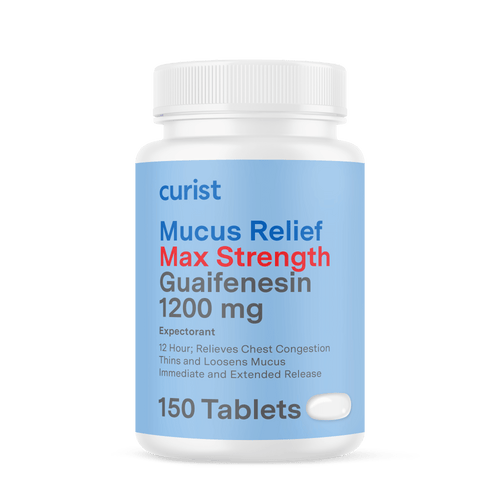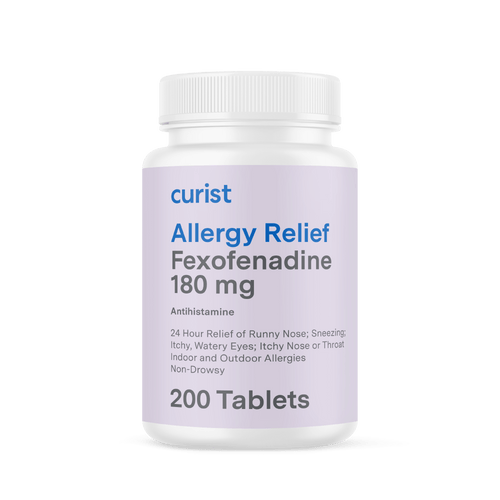by Dr. Waverly Yang, PharmD, Curist Pharmacist Advisor
Curist delivers over-the-counter medicines to your door at a fraction of the price of traditional brands. We hope everyone stays safe and healthy during this time.
Nowadays, when your throat starts to feel tender and it hurts to swallow, it’s easy to start panicking about coronavirus (COVID-19). Before you jump to conclusions, here are some reasons why your throat might feel sore.
What Is A Sore Throat?
While knowing what a sore throat feels like may seem obvious, there are a few differences between a sore throat, itchy throat, and scratchy throat. People with a sore throat will often feel:
- Pain, irritation, dryness, and rawness in the throat
- Pain and/or difficulty swallowing or talking
- Swollen or tender glands in the neck
- Hoarseness or pain when speaking
- Redness or white patches on the tonsils or the back of the throat
Alternatively, you can learn more if you think you have an itchy throat or scratchy throat.
There are many potential culprits behind a sore throat, but here are some of the most common causes.
Is My Sore Throat From Coronavirus (COVID-19)?
Understandably, the most terrifying thought when you have a sore throat is that you may have contracted coronavirus (COVID-19). Although the CDC has identified a sore throat as a possible coronavirus (COVID-19) symptom, one study of 1,099 coronavirus (COVID-19) patients in China reported that only about 13.9 percent exhibited that symptom. Other symptoms, like fever and dry cough, are more common in COVID-19 patients. If your sore throat is accompanied by fever, dry cough, shortness of breath, loss of taste or smell, or fatigue, you may consider getting an active infection test for the novel coronavirus, SARS-COV2.
Is My Sore Throat From Allergies?
Allergies are a result of an inflammatory reaction to environmental allergens like pollen, dust, animals, and more. Some allergic reactions may involve an itchy sensation in the throat and a post nasal drip felt in the back of the throat, which triggers throat clearing. Allergies could also include symptoms like itchy throat and watery eyes, sneezing, congestion, and a runny nose. Taking an antihistamine is often the quickest and easiest way to treat these allergy symptoms, but you may need a nasal allergy spray if you are also experiencing significant nasal congestion.
To learn more about other allergy symptoms, check out:
- Sneezing and Coronavirus and Uncontrollable Sneezing Fits
- Itchy Throat and Coronavirus
- Itchy Ears and Coronavirus
- Itchy Nose and Coronavirus
- Itchy Tongue
- Itchy Skin & Chronic Hives
Is My Sore Throat From a Strep Throat Infection?
Strep throat infections are usually characterized by redness, white patches, or pus on the back of your throat or tonsils. You might also have some swollen and tender lymph nodes in your neck, pain when swallowing, and even a fever. The best way to confirm whether you have strep throat is to have your doctor conduct an in-person test that involves a quick throat swab that can be rapid-tested in the office or sent to a lab for analysis.
Is My Sore Throat From the Flu vs Common Cold?
The flu can be a potential cause of your sore throat. Besides a sore throat, other common flu symptoms include cough, runny and/or stuffy nose, muscle or body aches, fatigue, and fever. Since the flu may have similar symptoms to coronavirus (COVID-19), flu as a cause of sore throat can also be tested by doing a nasopharyngeal swab similar in technique to the genetic PCR test for SARS-COV2. The best way to protect yourself, though, and get some peace of mind, is to get your flu vaccine. The best time to get a flu vaccine is mid October through the end of November.
The common cold has similar symptoms to the flu, and many people experience a runny nose, cough, congestion, and sneezing. Colds tend to have milder symptoms and will usually go away on their own after a few days, but talk to your doctor if you start to have more severe symptoms or develop a fever.
What Are Other Reasons For Sore Throat?
We’ve already common reasons for sore throats, including the flu, common cold, and strep. If none of these match how you are feeling, other reasons you may be having a sore throat include:
- Overusing your voice
- Acid reflux (to learn more, check out Acid Reflux, Heartburn & Coronavirus)
- Eating hot, spicy foods
- Post-nasal drip
- Dry, indoor air
- Dehydration
- Smoking or secondhand smoke exposure
Avoiding these triggers is the best way to resolve your sore throat.
How Can I Treat My Sore Throat and Get Rid Of A Sore Throat Quickly?
First, if you have identified the underlying reason of the throat soreness consider treating that cause. For instance, if your sore/itchy throat is related to allergies, successfully managing your allergies well will both help reduce your allergy symptoms and help your throat feel better.
Although treating your sore throat will depend on the cause, there are a couple ways to treat sore throat pain and discomfort:
- Drink plenty of water, preferably warm
- Use a throat lozenge or cough drop to keep your throat moist
- Use a humidifier
- Gargle salt water
- Numbing sprays or numbing throat lozenges
- NSAIDs like acetaminophen (like Curist Pain Relief) or ibuprofen
For more information about COVID-19, please visit the CDC website. As always, if you are not feeling well, please reach out to your medical provider or in an emergency call 911.




